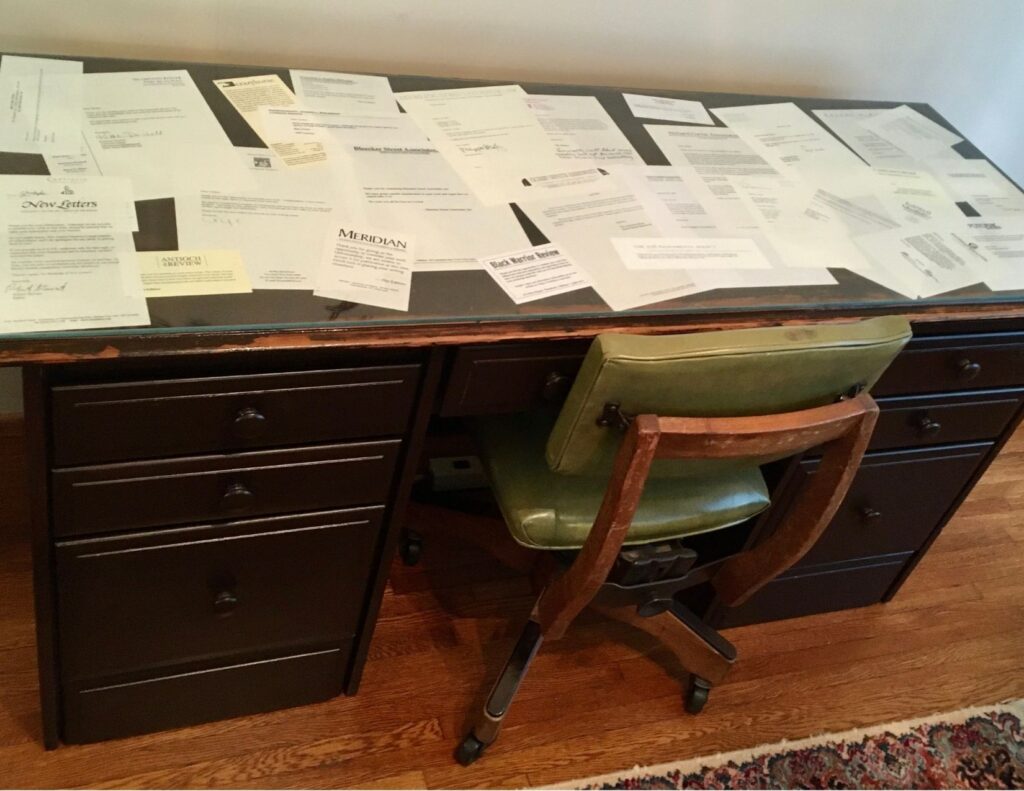One of the pandemic projects I actually completed was a complete overhaul of my desk. This overhaul consisted of cleaning out its drawers, sanding it, staining it, and covering its surface with a small sampling of rejection letters that I’ve amassed over two-plus decades as a writer. It’s something I’ve wanted to do for years.

It felt a little strange to see just how much work I was sending out back then, starting around 2004 and tapering off around 2012 before starting up again around 2016 as I tried to find a home for my novel, We Take Care of Our Own (coming soon from Montag Press). I developed quite the emotional callus from so many of these gatekeepers’ form rejections. I like to tell friends the best evidence I have regarding my status as a writer, what sets me apart from somebody who writes for fun, is my vast collection of rejection letters. I’ve been rejected by some of the best literary journals in America.
Since finding publication for my novel, I’ve started writing stories and sending them out to literary journals again. The rejections feel the same, so far, but the writing feels different this time. Whereas I used to begin a story with a feeling of “This idea is so good, it’s just got to work!” (which usually, over the course of its writing, turns into, “This story sucks, the writing sucks, I suck, and, let’s be honest, the idea wasn’t all that great to begin with, so I should probably stop”), I now begin a story with a moment, a memory, a detail, whatever’s at hand, then build it out until I find myself inside a situation that renders the moment, the memory, the detail, as justified and real. Then, as soon as possible, I end the story.
Of course, that’s where the real work begins, adding new things and taking away the stuff that doesn’t seem to work. “Writing is rewriting” and all that. But lately the work feels more cheerful and with less at stake. It’s hard to maintain the desperate belief that the next short story will be the one to finally justify your existence as a writer when you’re working on top of a pile of anonymous rejections. Maybe that’s for the best, as it helps to maintain a sense of humor about the business side of this kind of work.